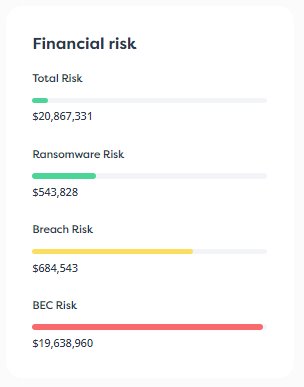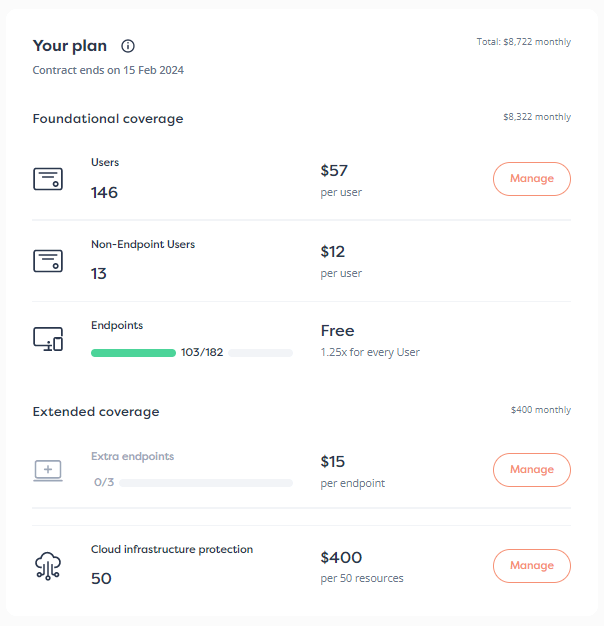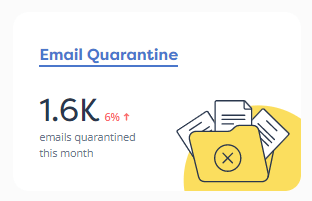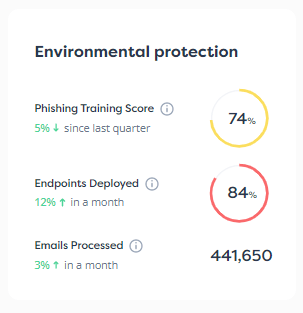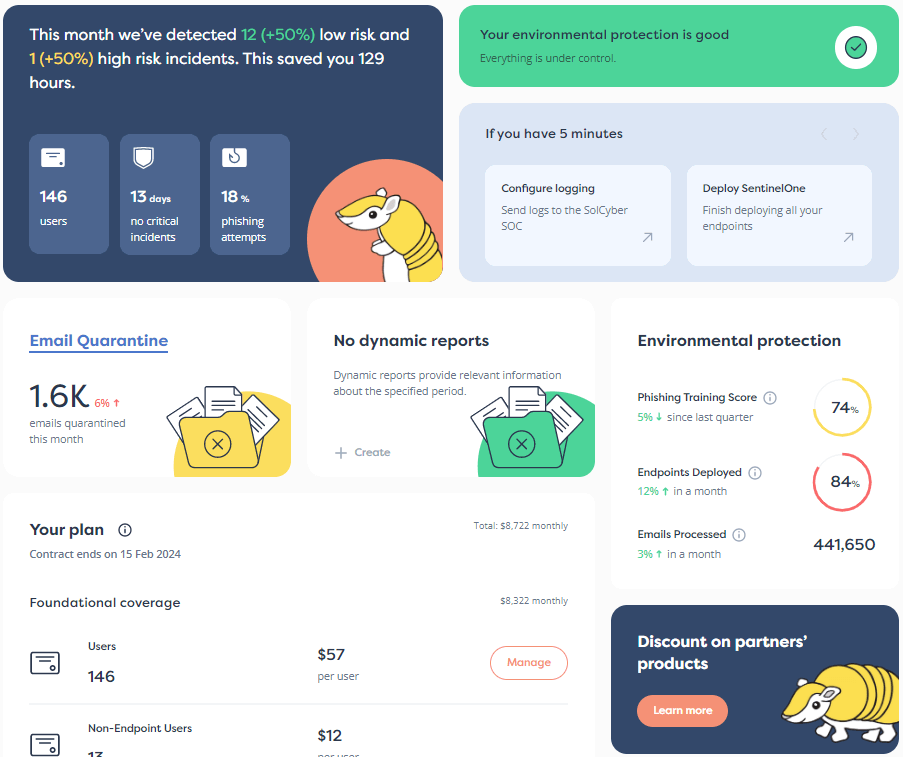

Investing in effective cybersecurity is no longer a luxury but a critical necessity for businesses of all sizes. Smaller organizations are especially vulnerable because hackers rely on the fact that SMEs have a smaller cybersecurity budget than larger organizations. This is borne out by the fact that 43% of all cyber attacks are launched against small/mid-size businesses.
Cyber threats have grown both in quantity and complexity. Research by Check Point showed a 38% increase in global cyberattacks in 2022. Newly discovered vulnerabilities, such as the Log4Shell vulnerability showed us how quickly a zero-day vulnerability can be exploited, stressing the need for fast detection and response. Even major software platforms and companies such as Amazon Web Services, Microsoft, IBM, and Cisco were affected by the flaw, leaving little hope for SMEs whenever new software flaws appear.
Threats are also growing more sophisticated, such as the wide-scale Colonial Pipeline ransomware hack.
To make matters worse, hackers are starting to leverage AI and machine learning to improve their attacks. These tools are especially helpful in tricking users by creating compelling social engineering messages.
The cost of a data breach can be crippling, especially for smaller businesses. IBM reports that the average data breach cost reached an all-time high of $4.45 million per breach in 2023.
In addition to direct financial losses, breaches can also cause long-term reputational damage and loss of customer trust, potentially impacting future revenue.
As more businesses go online, cybercriminals have a broader array of potential targets. The increasing reliance on digital operations, especially post the COVID-19 pandemic, means the attack surface has grown.
Although the above reasons certainly make a compelling case for investing in cybersecurity, the option often remains out of reach for smaller businesses because of budget constraints. Yet, investors often demand that robust security measures are in place before considering any serious investment, creating a “chicken-and-egg” situation for businesses. They need funds to invest in cybersecurity but can’t get funds because they don’t have the right cybersecurity.
This problem is made worse when your business is in an industry that is a magnet for cybercriminals, such as financial services or the medical sector.
Even when a business has an in-house IT or security team, this team might lack specialized expertise in the face of a constantly evolving threat landscape.
Fortunately, the emergence of managed security programs opens the door to a cost-effective solution that is both comprehensive and sophisticated. Because of the economies of scale, managed security providers can offer state-of-the-art security solutions at a fraction of the cost of operating those solutions in-house.
Choosing the right managed security provider depends on two major factors:
A managed security program provider should offer 24/7 service. Its pricing should also be transparent and easy to follow, without any hidden fees. If the managed security provider gives you a clear plan that lets you understand what’s included, you can make an informed decision.
When looking for a managed security program provider, ask about their recovery and remediation process. The faster you can recover from an incident, the less it will end up costing. Speed is of the essence when responding to a cyber incident.
The final point to consider is whether that managed security provider is a good fit for your specific needs. Those criteria are based on industry, size, and environment makeup. A managed security provider might look great on paper yet be better suited to companies in a different industry or of a different size.
When you partner with a managed security program provider, you gain access to a fully functional, outsourced cybersecurity department, tailored to fit the needs of your business.
A good managed security provider will bring dedicated expertise and specialized knowledge. Equally important, they will work alongside you to develop and implement a cybersecurity strategy customized for your specific requirements. This includes identifying potential vulnerabilities and setting up preventive measures.
As an additional bonus, good security providers often have relationships in place with insurance providers and threat response teams so that you can obtain these additional services at competitive prices.
Entrusting your cybersecurity needs to a managed security program provider not only ensures round-the-clock protection, but it also allows your business to benefit from the latest industry innovations and best practices.
With the right managed security provider, the leap from traditional cybersecurity to managed security can be smooth and straightforward.
A capable provider will start by conducting a comprehensive analysis to evaluate your existing cybersecurity posture and identify areas of improvement. Based on this, they’ll develop a customized cybersecurity strategy tailored to your organization’s needs and risk profile. This often includes a roadmap for the implementation of advanced security controls, detection and monitoring solutions, and incident response plans.
SolCyber provides comprehensive cybersecurity solutions for businesses alongside ongoing support and monitoring services to help organizations adapt to new threats as they emerge.


By subscribing you agree to our Privacy Policy and provide consent to receive updates from our company.


